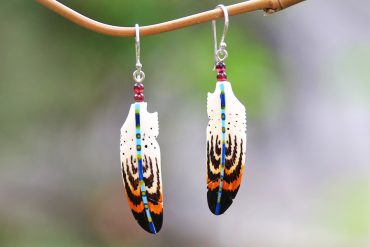Masks function as shields; therefore, their levels of protection are dependent upon the types of materials from which they are made. The CDC recommends that healthcare providers wear N95 masks, which capture 95% of micro particles by tightly sealing susceptible areas, like the mouth and nose. For those who do not work in a healthcare setting, disposable or cloth masks are recommended. Handmade, artisanal face masks are one great option. They are designed to be an affordable, reusable form of protection against the spread of bacteria and viruses, in addition to dust and tiny particles. They block bodily fluids that may be emitted when one sneezes, coughs, or talks. Face masks from Bali, India, and Mexico are often made from organic fibers or tightly woven cotton and use multiple layers to provide the highest level of protection. Thailand specializes in muslin cotton, fibers that block pathogens at a rate that is comparable to medical-grade face masks. Of course, wearers must wash masks frequently and practice social distancing. But by wearing sustainable face masks made from natural, tightly woven fibers, wearers help slow the spread of possible airborne particles.

